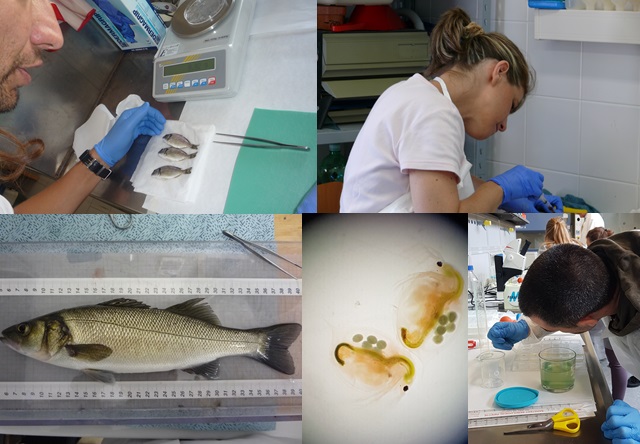
Pharmacology, toxicology and welfare in aquaculture
With a view to the protection of reared animals, the aquatic environment and the consumer, this course aims to guide the student to:
- the appropriate use, in compliance with the regulations in force, of the active ingredients in the aquaculture sector;
- the knowledge of the main classes of contaminants and of their possible impact on aquatic organisms, husbandry and the healthiness of fish products;
- the understanding of animal welfare issues in different contexts, with particular reference to fish and to the current legislation;
- the recognition of factors that may affect the welfare of farmed fish, and the physiological, behavioral and health indicators that allow its assessment.
Pharmacology and Toxicology module
The general principles of pharmacokinetics and toxicokinetics will be explained, followed by a description of the proper use of drugs and disinfectants in aquaculture, with particular reference to the pharmaceutical forms and to the methods of prescription and administration.
The various factors regulating the fate of active ingredients in the environment will be examined. An overview of the main classes of natural and industrial contaminants of the aquatic compartment will be provided, and their possible transfer to fish products will be discussed in the frame of an environmental and consumer risk-assessment.
Practical activities will cover the preparation of various aquatic toxicity tests on primary producers and primary consumers, and the processing of test results.
Teaching methods will include working in group, classroom discussion and the use of multimedia tools.
Welfare module
The issues related to the welfare of farmed fish will be presented, starting from the birth and evolution of the concept of animal welfare up to its application to fish. The topic will be treated from a critical point of view in order to understand its evolution in the different areas of interaction between man and animal such as cohabitation, breeding and biomedical research. This will be done with the help of surveys, carried out individually or in groups, in order to explore and understand the different aspects, contextualizing them and making them tangible. After this critical review of the topic, the focus will be on fish by assessing the issues related to its welfare in the areas of interaction with humans, particularly in breeding. The perception of pain, the concept of suffering and stress, and the factors that most influence fish welfare in aquaculture will be addressed. Finally, physiological, behavioral and health indicators that allow its evaluation will be identified.
Practical activities will focus on organs and tissues sampling techniques in farmed species, for the evaluation of welfare indicators through the observation/application of the proper analytical techniques.
The overall aim is to give the student a critical ability regarding the concepts of animal welfare in the different areas of interaction with humans, to provide the tools that will enable him/her to evaluate the farming conditions and to plan an analytical monitoring that guarantees the fish welfare.
The course is held by two teachers: Prof. Marco De Liguoro, for the Pharmacology, Toxicology and Legislation module, and Prof. Daniela Bertotto for the Welfare module.
For the complete program, please consult the Syllabus






